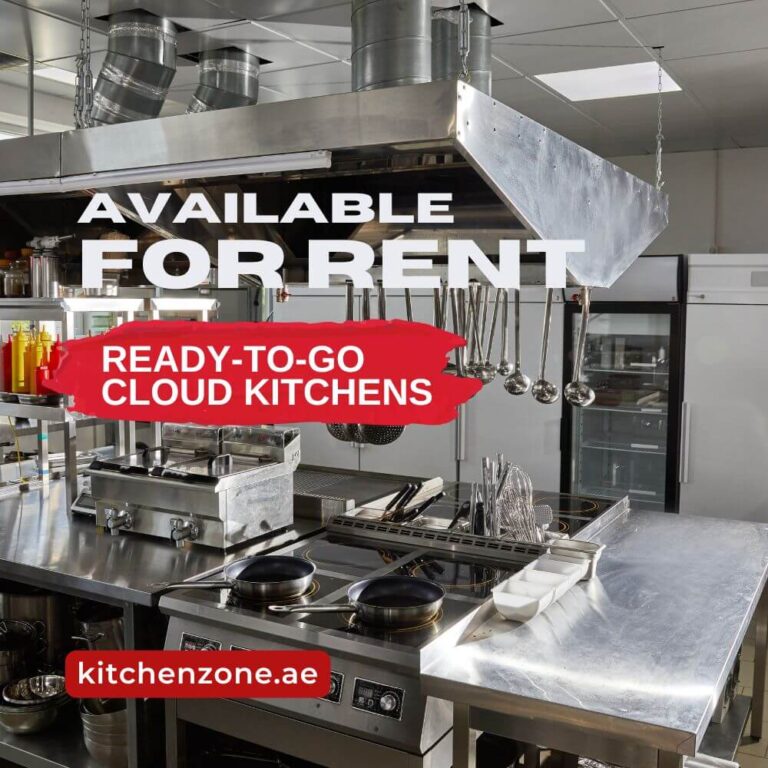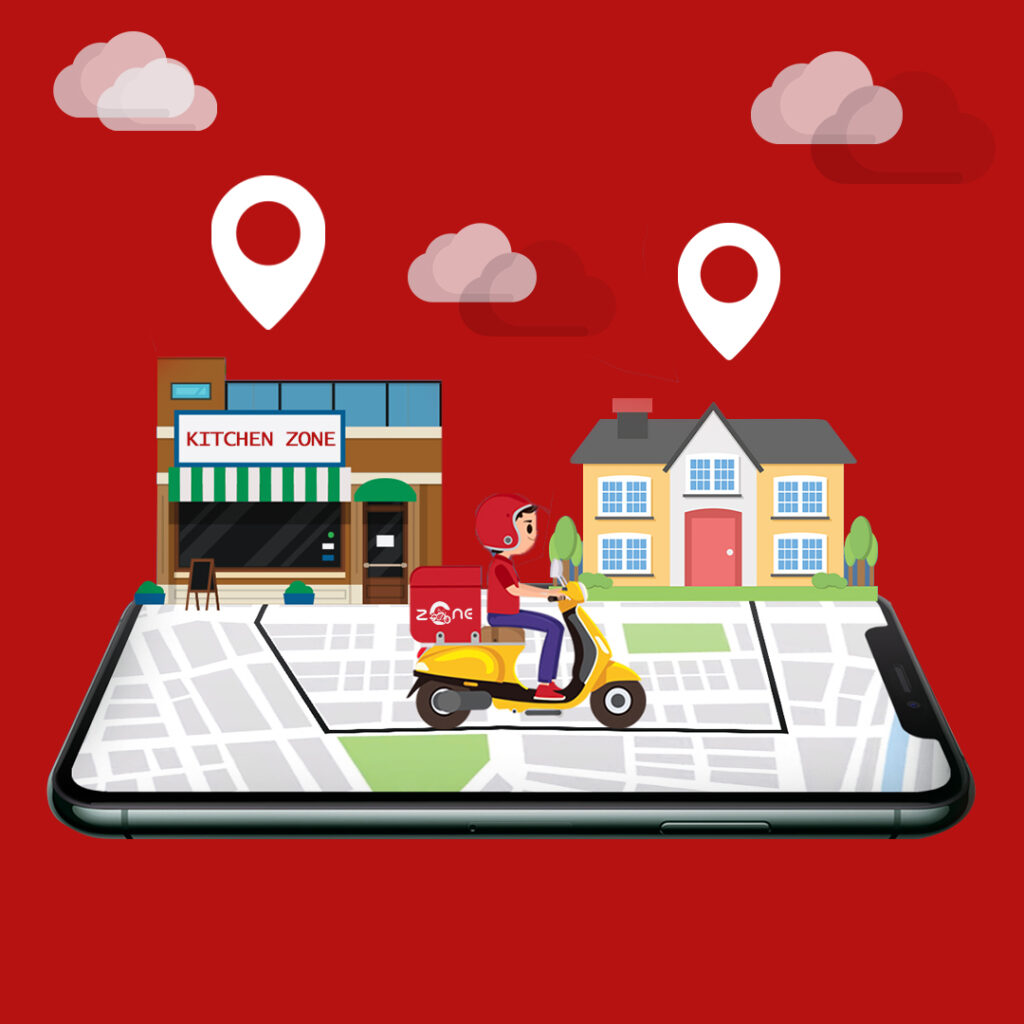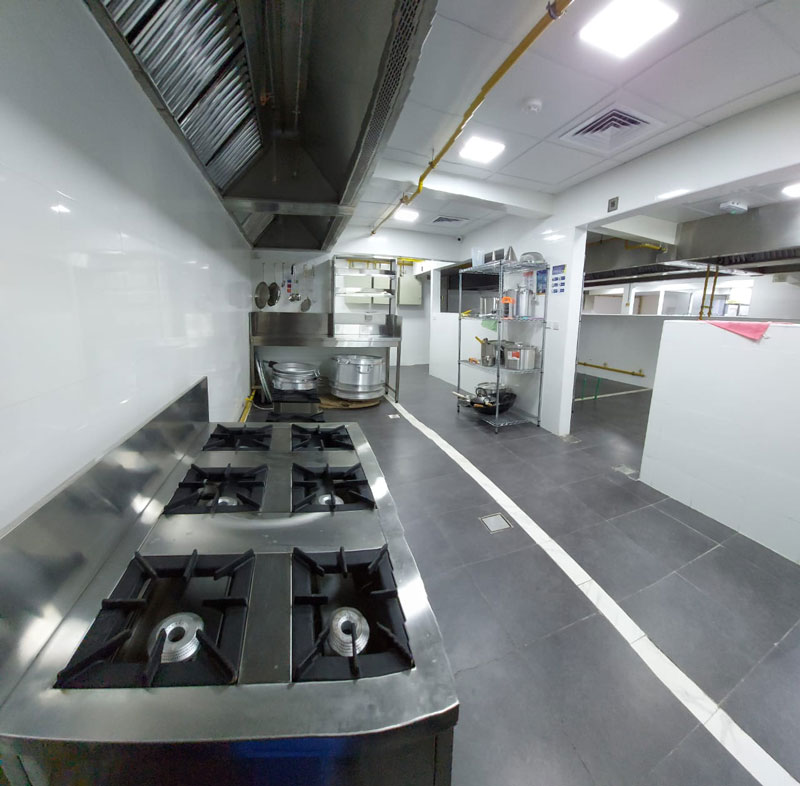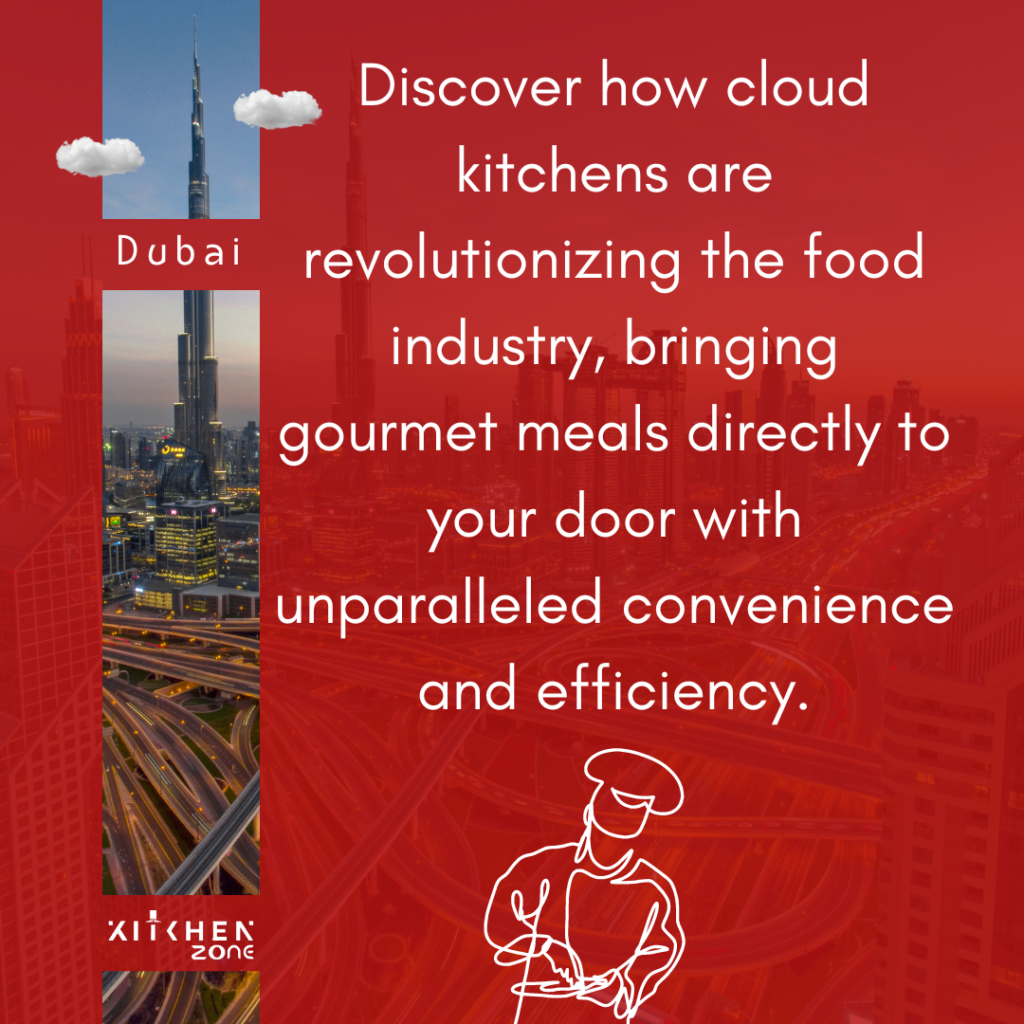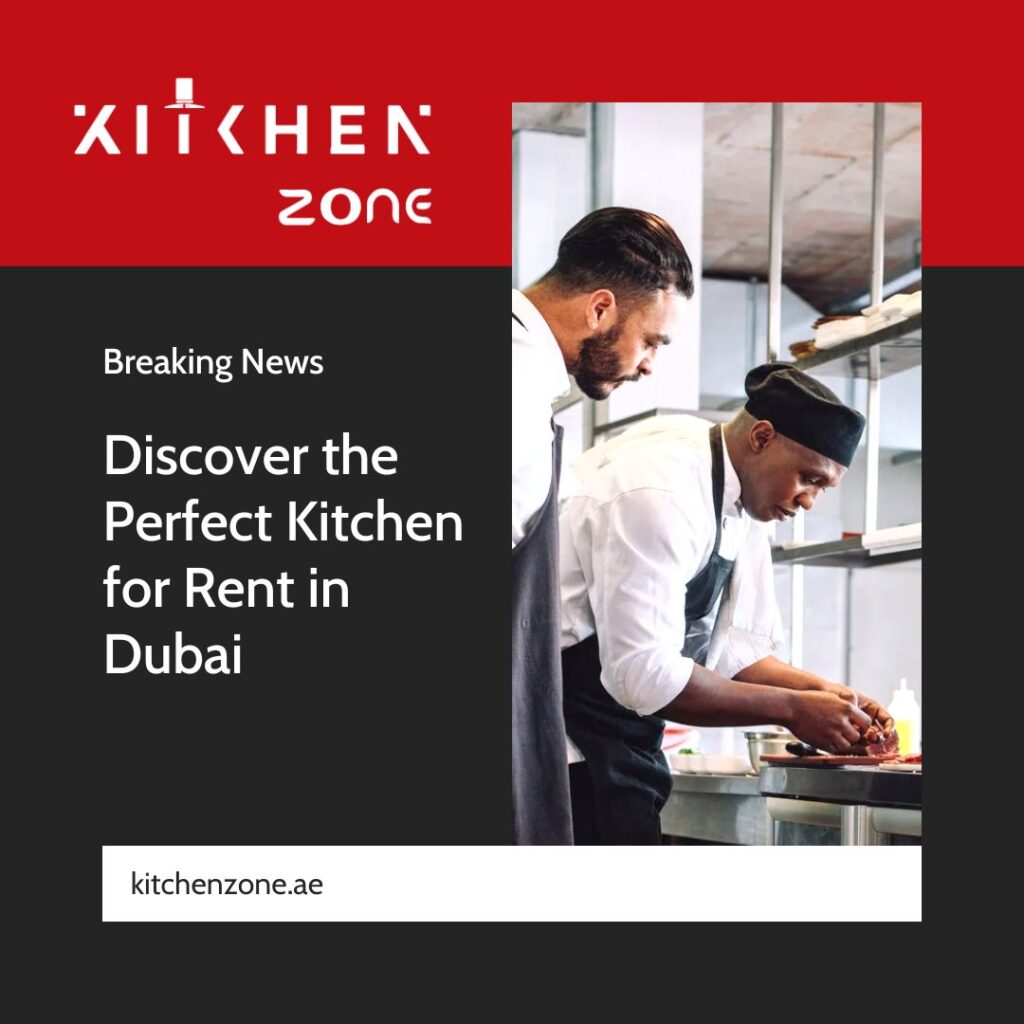Table of Contents
In the fast-paced city of Dubai, a culinary revolution is underway. Cloud kitchens are rapidly gaining popularity and revolutionizing the food delivery landscape. These innovative kitchens are transforming the way people dine by catering exclusively to the delivery market. With the rise of food delivery apps and changing consumer preferences, cloud kitchens offer a cost-effective and efficient solution for restaurant owners and food entrepreneurs.
Dubai’s burgeoning food delivery market has created a lucrative opportunity for cloud kitchen operators. These virtual kitchens eliminate the need for traditional brick-and-mortar establishments, allowing businesses to focus solely on preparing and delivering high-quality meals. By cutting overhead costs associated with physical locations, cloud kitchens can offer competitive prices and a wider variety of cuisines.
With the convenience of ordering food at the click of a button, Dubai residents are embracing the concept of cloud kitchens. The trend is driven by the desire for diverse culinary experiences, quick delivery times, and the benefits of contactless dining. As the demand for delivery services continues to grow, cloud kitchens are poised to reshape Dubai’s food industry and provide endless options for food enthusiasts across the city.
The benefits of cloud kitchens in Dubai for food delivery businesses
Cloud kitchens, often referred to as ghost kitchens or virtual kitchens, present a myriad of advantages for food delivery businesses. One of the primary benefits is the significant reduction in overhead costs. Traditional restaurants require substantial investments in real estate, interior design, and maintenance. By eliminating the need for a physical dining space, cloud kitchens allow entrepreneurs to focus their resources on food preparation and delivery logistics. This financial flexibility can lead to more affordable menu prices, which is particularly appealing in a competitive market like Dubai.
Another advantage is the ability to rapidly scale operations. Cloud kitchens can easily expand their offerings by adding new cuisines or menu items without the constraints of physical space. This flexibility allows businesses to test new concepts quickly and adapt to consumer preferences. If a particular dish gains popularity, a cloud kitchen can increase production without the logistical challenges of a traditional restaurant. This adaptability is crucial in a dynamic food landscape where trends shift rapidly.
Moreover, cloud kitchens benefit from the surge in demand for food delivery services. With the rise of platforms like Zomato, Deliveroo, and Talabat, the appetite for convenient meal options has never been higher. Cloud kitchens can leverage these delivery platforms to reach a broader audience without the need for extensive marketing efforts. By tapping into the existing infrastructure of food delivery apps, businesses can focus on creating high-quality meals while ensuring they are accessible to a vast customer base.
The rise of cloud kitchens in Dubai
The emergence of cloud kitchens in Dubai can be attributed to several factors that have transformed the culinary landscape in the city. The rapid urbanization and a diverse expatriate population have created a unique food culture that demands variety and convenience. As residents increasingly prioritize convenience, the traditional dining experience has taken a back seat. This shift in consumer behavior has paved the way for cloud kitchens to flourish, offering a wide array of cuisines delivered directly to customers’ doorsteps.
Additionally, the COVID-19 pandemic accelerated the growth of cloud kitchens as lockdowns and social distancing measures prompted many consumers to turn to food delivery services. With dining out restricted, the demand for high-quality takeout surged. Cloud kitchens, equipped to handle this shift, emerged as a viable solution for both consumers and entrepreneurs. The pandemic highlighted the importance of flexibility in the food industry, and cloud kitchens provided an adaptable model that could withstand such challenges.
Dubai’s government also plays a significant role in fostering the cloud kitchen trend. With initiatives aimed at supporting small businesses and entrepreneurs, regulatory frameworks have been established to facilitate the operation of cloud kitchens. These frameworks often include simplified licensing processes and reduced fees, making it easier for new entrants to join the market. As a result, Dubai has witnessed an explosion of cloud kitchens that cater to diverse culinary tastes, further solidifying the trend in the region.
The impact of cloud kitchens in Dubai on the food delivery landscape
Cloud kitchens have fundamentally altered the food delivery landscape in Dubai, creating a ripple effect that benefits consumers, businesses, and the economy as a whole. For consumers, the availability of cloud kitchens means access to a wider variety of cuisines than ever before. With just a few taps on their smartphones, residents can explore international flavors from the comfort of their homes. This expanded culinary landscape not only satisfies diverse palates but also fosters a culture of gastronomic exploration, encouraging residents to try new dishes and cuisines.
For businesses, cloud kitchens in Dubai provide an opportunity to innovate and experiment with their offerings. The absence of a traditional dining environment means that chefs can focus on refining their culinary skills and experimenting with new recipes without the pressure of immediate customer feedback in a restaurant setting. This freedom often leads to the creation of unique menu items that can capture the attention of food enthusiasts. Additionally, the lower initial investment allows budding chefs and restaurateurs to enter the market with less risk.
On a broader scale, the rise of cloud kitchens contributes to the local economy by creating jobs in food preparation, delivery logistics, and technology. The demand for delivery personnel has surged, leading to increased employment opportunities for drivers and riders. Moreover, cloud kitchens often collaborate with local suppliers for ingredients, fostering community relationships and supporting local agriculture. This interconnectedness enhances the overall economic landscape, demonstrating the positive impact cloud kitchens have on Dubai’s food delivery ecosystem.
How cloud kitchens in Dubai operate
Operating a cloud kitchen involves a unique business model that differs significantly from traditional restaurants. The core focus of a cloud kitchen is on food production and delivery, rather than dining experiences. These kitchens typically do not have a storefront or dining area; instead, they are strategically located in areas with high demand for food delivery. This location strategy allows cloud kitchens to optimize their delivery times and service multiple neighborhoods efficiently.
Cloud kitchens often utilize a shared kitchen space, where multiple brands can operate simultaneously. This collaborative environment not only reduces costs but also fosters a sense of community among food entrepreneurs. Each brand can access shared resources such as kitchen equipment, storage facilities, and staff, leading to greater efficiency. This model allows smaller brands to compete with established names without the burden of high overhead costs associated with maintaining a standalone restaurant.
Technology plays a crucial role in the operation of cloud kitchens in Dubai. From sophisticated kitchen management systems to order processing software, technology streamlines the workflow and enhances efficiency. Cloud kitchens often integrate with food delivery platforms, allowing them to manage orders, track deliveries, and analyze customer preferences in real-time. This data-driven approach enables cloud kitchen operators to optimize their menus based on consumer trends and make informed decisions about their offerings.
The challenges of operating a cloud kitchens in Dubai
While cloud kitchens present numerous advantages, they also come with their own set of challenges. One of the most significant hurdles is the intense competition in the food delivery market. With the ease of entry into the cloud kitchen space, numerous operators compete for the attention of consumers. This saturation can make it difficult for newcomers to establish a brand identity and attract a loyal customer base. Standing out in a crowded market requires innovative marketing strategies and exceptional food quality.
Another challenge is the reliance on third-party delivery platforms. While these platforms provide access to a vast customer base, they often charge significant commission fees that can eat into profit margins. Cloud kitchen operators must carefully balance the costs associated with using delivery services while ensuring that their prices remain competitive. This financial dynamic can be particularly challenging for small businesses trying to maintain profitability in a fast-paced environment.
Furthermore, maintaining food quality during delivery is crucial for cloud kitchens. Unlike traditional restaurants, where customers consume meals immediately, cloud kitchens must ensure that food remains fresh and appealing during transit. This requires careful packaging and temperature control, as well as a commitment to quality standards. Any lapse in food quality can lead to negative reviews and damage a brand’s reputation, making it essential for cloud kitchen operators to prioritize quality assurance throughout their operations.
Success stories of cloud kitchen brands in Dubai
Dubai’s cloud kitchen scene is teeming with success stories that highlight the potential of this innovative business model. One notable example is “Kitchen Nation,” a cloud kitchen concept that has gained popularity for its diverse range of cuisines. By offering a rotating menu that incorporates international flavors, Kitchen Nation has successfully attracted a loyal customer base. Their ability to adapt to food trends and customer feedback has solidified their position in the competitive food delivery landscape.
Another success story is “QSR International,” which operates multiple virtual brands out of a single kitchen facility. By leveraging shared resources and technology, QSR International has been able to efficiently manage several distinct brands, each catering to different culinary preferences. Their approach to market segmentation and branding has allowed them to capture a broad audience, showcasing the power of scalability within the cloud kitchen model.
Furthermore, “EatEasy” has emerged as a frontrunner in the cloud kitchen space, known for its commitment to health-conscious meals. By offering nutritious options delivered straight to customers’ doors, EatEasy has tapped into the growing demand for healthier eating choices. Their focus on quality ingredients and transparency has garnered them a dedicated following, proving that cloud kitchens can thrive by aligning with consumer values and preferences.
Tips for starting a cloud kitchens in Dubai
Starting a cloud kitchen in Dubai requires careful planning and execution to navigate the competitive landscape successfully. One of the first steps is conducting thorough market research to identify consumer preferences and trends. Understanding the demographics and culinary tastes of potential customers can help in designing a menu that resonates with the target audience. This research will also aid in determining the optimal location for the cloud kitchen, ensuring that it is strategically positioned to serve high-demand areas.
Next, developing a solid business plan is crucial. This plan should outline the kitchen’s concept, target market, operational processes, and financial projections. It is essential to establish a clear brand identity that differentiates the cloud kitchen from competitors. This includes creating a compelling story behind the brand, which can be effectively communicated through marketing channels and food presentation. A strong brand identity not only attracts customers but also fosters loyalty.
Additionally, leveraging technology is key to the success of a cloud kitchen. Investing in kitchen management software and delivery integration tools can enhance operational efficiency. Moreover, establishing partnerships with popular food delivery platforms can maximize reach and visibility. Utilizing social media for marketing and engaging with customers can further enhance brand presence and drive sales. By embracing technology and innovation, aspiring cloud kitchen operators can position themselves for success in Dubai’s evolving food delivery landscape.
Future trends and opportunities in the cloud kitchen industry
The cloud kitchen industry is poised for continued growth and innovation, driven by evolving consumer preferences and technological advancements. One of the emerging trends is the integration of artificial intelligence (AI) and data analytics into cloud kitchen operations. By utilizing AI, cloud kitchens in Dubai can analyze customer data to predict food trends and optimize menu offerings. This data-driven approach allows businesses to tailor their menus to meet changing consumer demands, enhancing customer satisfaction and loyalty.
Another trend is the rise of sustainability in the food industry, which is increasingly influencing consumer choices. Cloud kitchens that prioritize sustainable sourcing, eco-friendly packaging, and waste reduction are likely to resonate with environmentally-conscious consumers. As sustainability becomes a key factor in purchasing decisions, cloud kitchens that adopt green practices can differentiate themselves in a crowded market and attract a loyal customer base.
Furthermore, the concept of “dark stores”—warehouses optimized for online orders—may become more prevalent in the cloud kitchen sector. These facilities can accommodate multiple brands and streamline operations, allowing for faster delivery times. As consumers continue to demand convenience, the integration of dark stores can enhance the efficiency of delivery services and provide cloud kitchens with a competitive edge. Overall, the future of the cloud kitchen industry in Dubai is bright, with ample opportunities for innovation and growth.
Conclusion: The future of food delivery in Dubai with cloud kitchens
In conclusion, cloud kitchens in Dubai are revolutionizing the food delivery landscape in Dubai, offering a unique blend of convenience, variety, and efficiency. As the demand for food delivery continues to grow, cloud kitchens are well-positioned to meet the needs of an evolving consumer base. With their ability to adapt quickly to changing trends, these virtual kitchens provide entrepreneurs with an innovative platform to explore diverse culinary experiences.
The success stories emerging from the cloud kitchen sector highlight the potential for growth within this model. As technology continues to advance, cloud kitchens can leverage data analytics, AI, and sustainable practices to enhance their operations and engage with consumers effectively. The future of food delivery in Dubai will likely see an even greater integration of cloud kitchens into the culinary landscape, providing residents with a plethora of dining options at their fingertips.
As Dubai embraces this culinary revolution, the rise of cloud kitchens in Dubai signifies a shift in the way residents perceive dining and food consumption. With a focus on convenience and quality, cloud kitchens are not only reshaping the food delivery experience but also paving the way for a more dynamic and diverse food culture in the city. The journey of cloud kitchens has just begun, and their impact on the food delivery landscape promises to be transformative for years to come.

